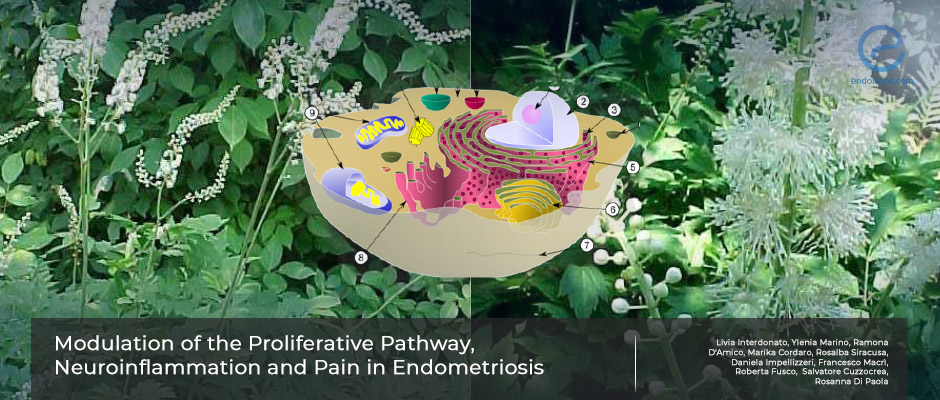The Molecular Mechanisms of how herbal medicine Actaea racemosa modulates Endometriosis Progression
Sep 18, 2023
Physiology under the effect of an ancient herbal medicine: Actaea racemose for endometriosis
Key Points
Highlights:
- Extract of the herbal medicine named "Actaea racemosa" improves apoptosis and corrects the imbalance between oxidants and antioxidants in endometriosis-affected rats.
Importance:
- The study examines the effect of Actaea racemosa on endometriotic implant growth, inflammation, and pain symptoms in rats with endometriosis.
What's done here:
- The study involves the administration of Actaea racemosa to female rats with induced endometriosis.
- 3 groups of rats including the control group (no endometriosis no medication), saline-infused endometriosis group, and oral AR-administrated group were analyzed after 14 days of each treatment.
- Actaea racemosa`s impact on progression, pain, and inflammation is assessed using high-frequency ultrasound, apoptosis measurements, and behavioral tests.
Key Results:
- Actaea racemosa treatment significantly reduced proliferation, improved apoptosis, and corrected the oxidative imbalance in endometriosis-affected rats.
- Rats with endometriosis exhibit profound pain sensitivity, but treatment has reduced thermal and mechanical hyperalgesia.
- Actaea racemosa administration prevented astrogliosis and reduced the expression of neuroinflammatory mediators in the spinal cord and hippocampal tissue.
Limitations:
- The study has been created for a 14-day observation period after endometriosis induction. Longer-term studies are necessary to assess the sustainability of effects and adverse effects over extended use.
Lay Summary
Increased proliferation, dysregulated apoptosis, and a pro-inflammatory and oxidative environment are the hallmarks of endometriosis. In the article published in the Journal of Molecular Sciences, penned by Livia Interdonato et al, the molecular mechanisms of the extract from a plant named "Actaea racemosa" administration in endometriosis were examined, with a particular emphasis on pain, oxidative stress, and proliferation.
High-frequency ultrasound analysis was used to track the progression of the disease, and Actaea racemosa treatment markedly reduced hyperproliferation. The administration improved apoptosis as measured by the TUNEL assay, Bax, and Bcl-2 expression.
Antioxidant qualities of Actaea racemosa are well-known and directly related to endometriosis. Endometriosis is intimately linked to excessive oxidative stress and antioxidant deficiency. In endometriosis-affected rats, the antioxidant capabilities of Actaea racemosa corrected the imbalance between oxidants and antioxidants. The results of the experiments conducted on rats both measuring the molecular and behavioral changes related to pain and inflammation showed a strong relationship between implant growth, the inflammatory milieu, and the appearance of pain-related symptoms. Rats with endometriosis exhibited visceral sensitivity, and the animals treated with Actaea racemosa showed decreased thermal and mechanical hyperalgesia and pain sensitivity.
Endometriosis is associated with both central and peripheral sensitization, leading to increased vulnerability to pain. The hippocampus, a key brain region involved in the emotional and cognitive consequences of neuropathic pain, is associated with the shift from short-term acute pain to long-term chronic pain. Actaea racemosa administration prevented astrogliosis in the spinal cord and hippocampal tissue and strongly reduced the expression of neuroinflammatory mediators. Thus the authors concluded that Actaea racemosa is a flavonoid that impacts endometriosis through several steps.
Research Source: https://pubmed.ncbi.nlm.nih.gov/37511500/
Actaea racemose proliferation spinalcord experiments endometriosis

